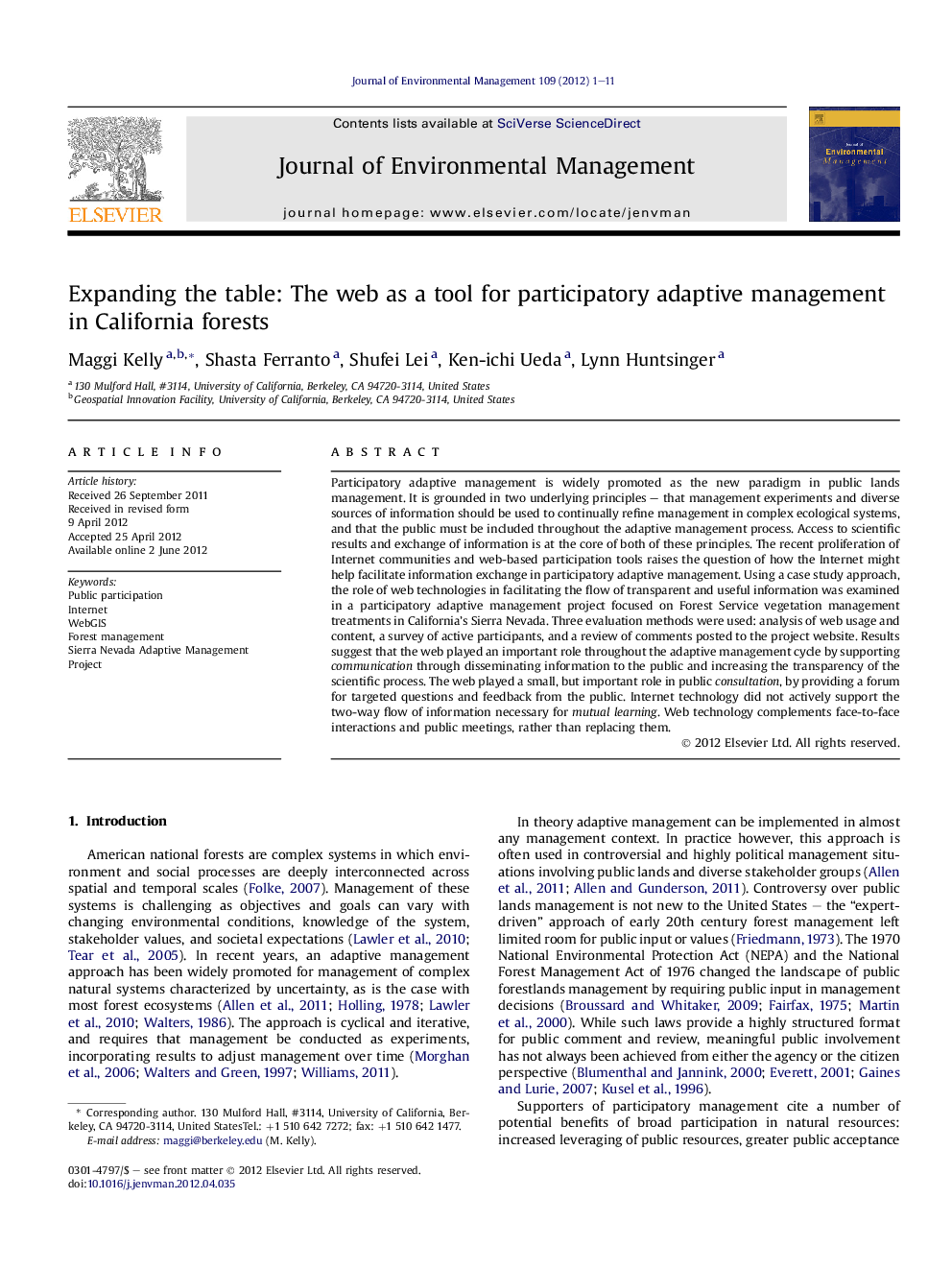| Article ID | Journal | Published Year | Pages | File Type |
|---|---|---|---|---|
| 1056476 | Journal of Environmental Management | 2012 | 11 Pages |
Participatory adaptive management is widely promoted as the new paradigm in public lands management. It is grounded in two underlying principles – that management experiments and diverse sources of information should be used to continually refine management in complex ecological systems, and that the public must be included throughout the adaptive management process. Access to scientific results and exchange of information is at the core of both of these principles. The recent proliferation of Internet communities and web-based participation tools raises the question of how the Internet might help facilitate information exchange in participatory adaptive management. Using a case study approach, the role of web technologies in facilitating the flow of transparent and useful information was examined in a participatory adaptive management project focused on Forest Service vegetation management treatments in California's Sierra Nevada. Three evaluation methods were used: analysis of web usage and content, a survey of active participants, and a review of comments posted to the project website. Results suggest that the web played an important role throughout the adaptive management cycle by supporting communication through disseminating information to the public and increasing the transparency of the scientific process. The web played a small, but important role in public consultation, by providing a forum for targeted questions and feedback from the public. Internet technology did not actively support the two-way flow of information necessary for mutual learning. Web technology complements face-to-face interactions and public meetings, rather than replacing them.
► The Internet can play a role in participatory adaptive management of public lands. ► The web is effective at communicating information to multiple parties. ► The Internet does not actively support dialogue and mutual learning. ► The Internet should be used to complement not replace public meetings. ► Adequate funding, early planning and adaptive design are important for success.
